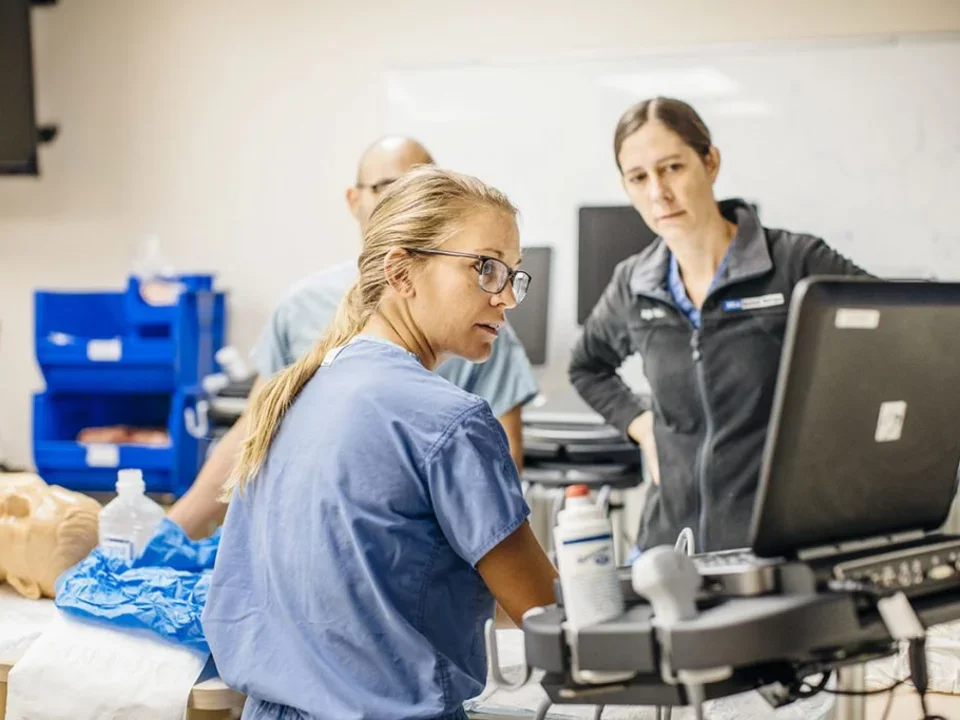Begin Your Teaching Journey Here
A Plethora of Resources to Help Faculty Build Their Foundation for Teaching Trainees
Getting Started
These resources were curated to provide essential self-service modules to assist faculty in the teaching of trainees.

UME Teaching & Learning Expectations
Explore the specific medical student policies and guidelines that the School of Medicine uses to guide its operations and that unite us in our mission to empower students to become physicians committed to excellence and leaders in innovation, research, health, education, advocacy and humanistic care.
UME Teaching & Learning Expectations
Resident Policies
Check out the policies that ensure the quality and safety of both patient care and resident behaviors.
Understanding the New HEALS Curriculum
The medical school curriculum redesign effort started in the Fall of 2017 with the very fundamental question, “why?” What does DGSOM seek to uniquely do in training future physicians? The answer – “Empower students to become physicians committed to excellence and leaders in innovation, research, health, education, advocacy, and humanistic care." The new HEALS curriculum began a phased implementation in August 2021.
- Year 1: Pre-Clerkship
A focus on case-based learning for students to think like a physician from the first year of medical school. Four core courses comprise the year – Base Camp, Early Authentic Clinical Experience (EACE), Foundations of Practice (FOP), and Scientific Foundations of Medicine (SFM)
- Year 2: Clerkships
Eight Core Clerkships (Emergency Medicine, Family Medicine, Medicine, Neurology, Obstetrics & Gynecology, Pediatrics, Psychiatry, and Surgery) Providing Foundational Knowledge & Experiences.
- Year 3: Discovery & Longitudinal Clinical Experiences
A period of protected time for a deep and substantive creative, scholarly, and clinical experience in an area of specialty interest.
- Year 4: Electives & Capstone
Student can pursue their passion for research and scientific inquiry in addition to exploring a wide variety of elective clinical coursework.
FERPA for Faculty, Tutorial and Quiz
The Family Educational Rights and Privacy Act (FERPA) of 1974 sets forth requirements regarding the privacy of student education records. FERPA governs the release of these records maintained by an educational institution and access to these records. It is a requirement to take the FERPA Quiz every two years to continue access.
Information for Faculty on Academic Accommodations
It is the role of faculty to facilitate access to classroom accommodations for students enrolled in their courses when they have received a Letter of Accommodation on their behalf.
UCLA Center for Accessible Education
Supporting Learners with Disabilities
Director of Disability Services for DGSOM, Grace Clifford, explores the myths and common assumptions related to accommodations, provides a quick ADA overview, highlights the process for reasonable accommodations, presents common clinical accommodations, and provides additional resources to ensure we are supporting our clinical learners with disabilities.
Supporting Learners with Disabilities Video
Implicit Bias Video Series and Modules
Explore reading materials, Ted Talk style videos, and other resources from the UCLA Equity, Diversity and Inclusion Office.
Resident as Teacher
Residents are often called upon to teach various aspects of medical practice to their patients, medical students or other residents. Access modules for the BEST longitudinal residents-as-teachers curriculum, The Clinical Teaching Perception Inventory (CTPI ®) and Resident Teaching Videos by clicking on the link below.
Access modules
One-Minute Preceptor
This 1-pager for Preceptors provides an overview and practical examples of a teaching method to guide preceptor-learner interactions via five microskills.
One-Minute Preceptor.pdf (411.35 KB)